Shinji Hosoe and Kotaro Uchikoshi Interview: Zero Times
Shinji Hosoe, as mentioned in our previous interview, is president of his game music production studio, Supersweep. His works range from Namco classics, such as Dragon Spirit, to indie games like Prismatic Solid, as well as the anime series, No Game No Life and the upcoming Taboo Tattoo.
In this interview, joined by Kotaro Uchikoshi, the director for the Zero Escape series, the two discuss the music for the series, including the recently released Zero Time Dilemma and the overall success of the series.
Interview Credits
Interview Subject: Shinji Hosoe, Kotaro Uchikoshi
Interviewer: Don Kotowski
Editor: Don Kotowski
Coordination: Don Kotowski, David Kracker (Spike Chunsoft)
Translation: David Kracker (Spike Chunsoft)
Interview Content
Don: Uchikoshi-san, the Zero Escape series has become quite popular in the West, more so than in Japan, and with it, its music has been highly praised for fitting the situations present in the games. How did you end up deciding that Shinji Hosoe-san was going to be the composer for the series?
Kotaro Uchikoshi: Visual novels are story-centric so the sound needs to fit the mood of the scene—be it tense, sad or dreadful, or even relaxing… Hosoe-san is best known for Ridge Racer and Street Fighter EX but he’s worked on all sorts of titles and his talent crosses as many genres. I knew his sound would be perfect for the dizzying twists and turns of 999.
Don: Hosoe-san, in our past interview, before the release of the first game in the Zero Escape series, you stated that dark music is something that you find easy to compose. What were some of the challenges you faced when composing for 9 Hours, 9 Persons, 9 Doors? How did you approach the music that plays during puzzle sequences?
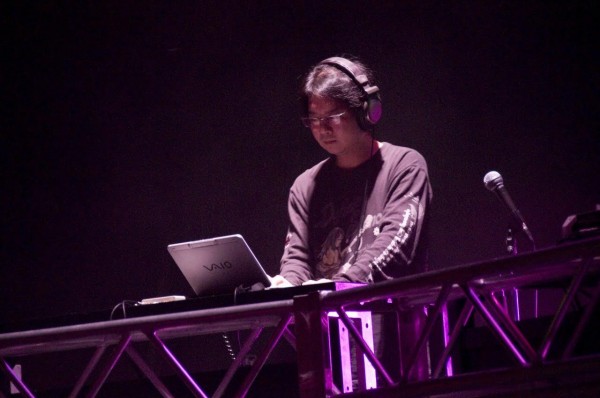
Shinji Hosoe: I’ve done this sort of job for a long time and 999, ironically, was the most straightforward—the reference materials were so concise they answered all my questions for me! I’ve never seen something like it before or again. In the very beginning I made some test tracks to get Uchikoshi-san and myself on the same page. After that it was smooth sailing.
I wrote the tracks using the Nintendo DS’s internal synth. Figuring out how to disguise this fact was a puzzle I worked on with one of our employees, [Yousuke] Yasui. I gathered the puzzle pieces and Yasui fit them together.
Don: In that same interview, you suspected that the title would be a Japan only type of game. Were you shocked at the reception it had once it was released in the West? What was your reaction to how the music was received by those who had played the game?
Shinji Hosoe: The foreign reception blew my mind. I think it helped that the international audience took to the refined elements of Uchikoshi-san’s writing.
Don: Uchikoshi san, could you also comment on any favorites, puzzle or story music, from that soundtrack that you might have?
Kotaro Uchikoshi: I remember it sounding exactly as I had envisioned. All of the tracks are my favorite for different reasons but I’m especially attached to “Digital Root” and “Trepidation.” Arrangements of these songs connect VLR and ZTD as part of the same series. They’re theme songs in a sense, like the “Imperial March” in Star Wars. I should also mention “9 Years.” I’m listening to it as I write and it’s making me all misty-eyed. I think it’s on par with “Morphogenetic Sorrow.”
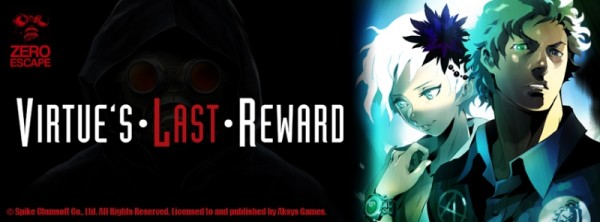
Don: Moving on to Virtue’s Last Reward, the overall tone of the game seemed less dark compared to 999. Uchikoshi-san, was there any particular reason for this and how did this decision influence your request for Hosoe-san’s music for the game?
Kotaro Uchikoshi: After 999 released our marketing research told us that people who didn’t buy it were turned off because it “seemed too scary.” We discussed it internally and decided that the sequel should be tamer. But this didn’t affect my instructions for Hosoe-san. 999 and VLR have a different setting and theme so that might account slightly for the different sound.
Don: Hosoe-san, similarly, the music itself featured a slight change compared to the tone featured in 999. How did you approach the music to this soundtrack to keep it fresh compared to the prequel, but at the same time, ensure that the overall atmosphere for the series was retained?
Shinji Hosoe: The music for 999 used internal hardware while VLR used streaming playback. This is where the schism begins. With that said, I think I got the best quality sound one could given the restrictions of the 3DS hardware. In VLR, my music was also influenced by the scenario, characters and plot twists. The game’s tracks are held together by all the tricks that I couldn’t work into 999.
“Blue Bird Lamentation” has special meaning for me. The song was supposed to play from a small music box, which only gave me two octaves. I went overboard at first but streamlined the music box sections. I put all my heart into the latter half. It feels like something is crushing your chest before suddenly flying away. Sorry for being abstract. If I had to choose another track it would be “Pantry.” It’s very plain, no frills but I like how it makes you feel like you’re being pushed into a corner.
Don: Uchikoshi-san, could you also comment on the end result of the music to Virtue’s Last Reward?
Kotaro Uchikoshi: What can I say except, it’s amazing! I could listen to the soundtrack all day. The ending theme is especially something special. Hosoe-san’s genius comes barreling through.
VLR’s story carries far-reaching consequences and the music was especially important to maintain that epic, blockbuster feel. One track in particular really nails it—“Blue Bird Lamentation,” a masterwork among masterworks. When I first heard this song, I knew the game would be a success. There’s no question, VLR wouldn’t have been as well received without such an emotional and dramatic song.
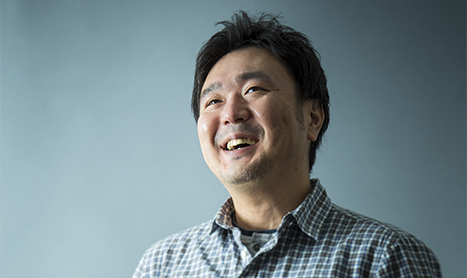
Don: Moving onto the upcoming Zero Time Dilemma, it is clear from the trailers and information about the Nonary Game this time around that the game is much darker and grittier. Uchikoshi-san, since this was the last game in the series, did you want to go all out in terms of presentation and were there any specific requests you had for Hosoe-san regarding the music, given that there were returning characters from both 999 and VLR?
Kotaro Uchikoshi: We started with the concept of “dark and visceral.” Re-reading my directions I see that I wrote, “Sad and lonely, like a worn-out record.” Hosoe-san translated that mood into music. As for returning characters, C Team has Junpei and Akane so I asked for remixes of 999 songs; D Team has Phi and Sigma so I wanted remixes of VLR songs.
Don: Hosoe-san, regarding the music for Zero Time Dilemma, the one thing I noticed was that the story scene music seems to be much more melodically focused compared to the previous titles. Would you say that the game’s music itself is just as focused on melody?
Shinji Hosoe: ZTD is less melodic overall. A song without melody is intended to not stick with the listener. During the planning stages we decided that we needed a certain amount of silence. You can’t force the music to hit on queue like you would in a movie, so I prepared a few atmospheric tracks to act as background noise.
Don: There are also some recurring themes from the past games that appear in the soundtrack. How did you go about selecting which previously composed music would make into the soundtrack?
Shinji Hosoe: Uchikoshi-san prepared a list of songs from the previous games and how he wanted to use them so I could work without second-guessing myself. Maybe if I force other people to wear his dirty socks his work ethic will rub off. (Laughs)
Don: Uchikoshi-san, could you tell us your thoughts regarding the music in the final game in the series?
Kotaro Uchikoshi: As with the previous games, all the tracks are fantastic. I asked for about 45 tracks and Hosoe-san went above and beyond the call of duty to deliver nearly 70! They were all unique. Some were tense numbers that made your palms sweat, others were ambient and soothing. He had a tone for every situation. The music for ZTD is different in that it conveys a sense of size and space. I hope the game gives you a feeling of solitude, or maybe even some hallucinations. The remixed tracks help give fans a shot of nostalgia and remind them of the weight behind the series.
Don: I briefly wanted to touch upon the main theme of the series, “Morphogenetic Sorrow,” a very prominent piece of music in the series, featured in 999, both in the title theme as well as played during a pivotal scene in the game, and in the opening and ending sequences for VLR. Uchikoshi-san, as the main theme for the series, was there any key features of the music that you wanted included in the end result? When you first heard the final version of the piece, what was your reaction?
Uchikoshi: The final act of 999 is nostalgic, tender and melancholic. It needed a tragic song, and “Morphogenetic Sorrow” is exactly that. The first time I heard it, it moved my soul. It was like waves of sorrow and loneliness were crashing against my chest. I was confident that, with this song, everything would be alright—I got the same feeling from “Blue Bird Lamentation.” I have to thank god for giving us the genius that is Shinji Hosoe.
Don: Hosoe-san, when composing this piece, what sort of information were you given to help craft the piece? It also is included in some capacity in Zero Time Dilemma. When incorporating it into Zero Time Dilemma, how did you approach its incorporation and what was your aim for those experiencing it in game? To me, it seems much more emotional compared to the previous renditions of the game.
Hosoe: Team C couldn’t have a proper ending without this song, now could they?
If you listen to the first half of the ending credits, I put in lots of callbacks to the previous titles as a sendoff for the series. This links to the song that started the series, “Morphogenetic Sorrow.” I hope it gives the player a sense of accomplishment.
Video game ending themes tend to sound totally different than the rest of the soundtrack. It’s rare to find one with as much personal emotion as this one. Watch the credits roll by, and take stock of the series as a whole. It was cathartic for me, and I hope for you as well.
Don: Uchikoshi-san and Hosoe-san, did you expect this piece to become as popular as it has, and was it always the plan to include it in every game in the series?
Kotaro Uchikoshi: I didn’t plan for 999 to be a series so of course I hadn’t thought of the song as a theme for the series. But it was such a fantastic song I wanted to use it in VLR. It’s also in ZTD, albeit as a remix. Like you say, “Morphogenetic Sorrow” has come to represent the Zero Escape series with a deep attachment to many fans. Not using it was never an option.
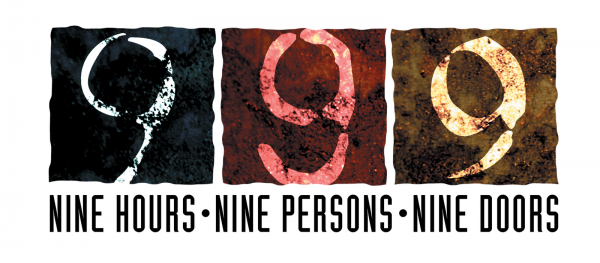
A bit of trivia—when I pitched ZTD, I opened with this song. To be more specific, a fan added lyrics asking for a sequel and uploaded it to YouTube. And what do you know, the project was approved! I wouldn’t have been able to give the world a proper conclusion if not for “Morphogenetic Sorrow” and that singer.
Shinji Hosoe: The emotional resonance of the song comes from the power of the video game behind it. Of course I never expected it to become the series’ theme, but 999 left you on such a cliffhanger I hoped for a sequel. And then VLR starts and you’re like, “What happened to everything from the last game?” Makes you wonder if Uchikoshi-san had it all planned from the start. Looking back, I can appreciate how he created, then closed, a loop.
Don: Lastly, Hosoe-san, your company, Supersweep, has published the soundtracks for the previous games in the series. Can we expect the third soundtrack to release in the near future under Sweep Record?
Shinji Hosoe: I’d definitely consider it. But that’s all I can say right now.
Don: Thank you Uchikoshi-san and Hosoe-san for speaking with us today about the music of the Zero Escape series. Is there any message you want to give fans of the series and/or music in closing?
Kotaro Uchikoshi: ZTD brings the cast of the series together and the music is refined to the point of perfection—you won’t believe your ears. (The story isn’t half-bad either.) I hope you enjoy the world the songs create.
Shinji Hosoe: And so the series finally concludes. I hope the mysteries revealed will give you closure—but also the feeling that the mysteries won’t let you go. Maybe you’ll be inspired to sing a song asking for a sequel. Until then, thank you!
A special thanks goes to David Kracker of Spike Chunsoft for translating the questions and responses for the interview. Representative samples of the Zero Time Dilemma soundtrack were provided courtesy of Spike Chunsoft in advance of the game to help generate questions for this interview regarding the music of the third game in the series.
Posted on July 30, 2016 by Don Kotowski. Last modified on August 11, 2016.

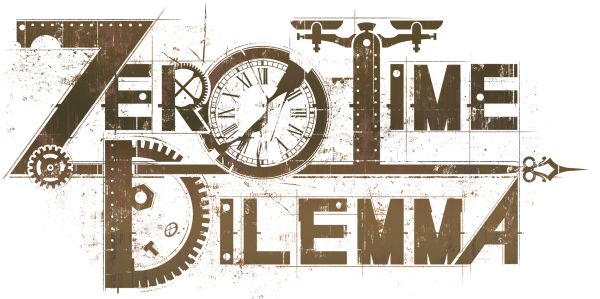
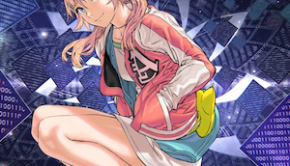
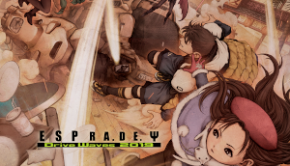
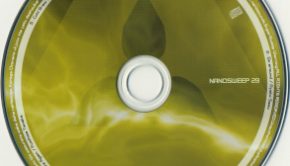
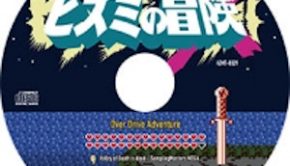










Great interview! Really liked how composer and director alike gave interesting perspectives on the music, and also how you captured the progression of the series.
Thanks Chris! It was definitely a unique experience and if all goes to plan, there will be another opportunity for a similar style interview.